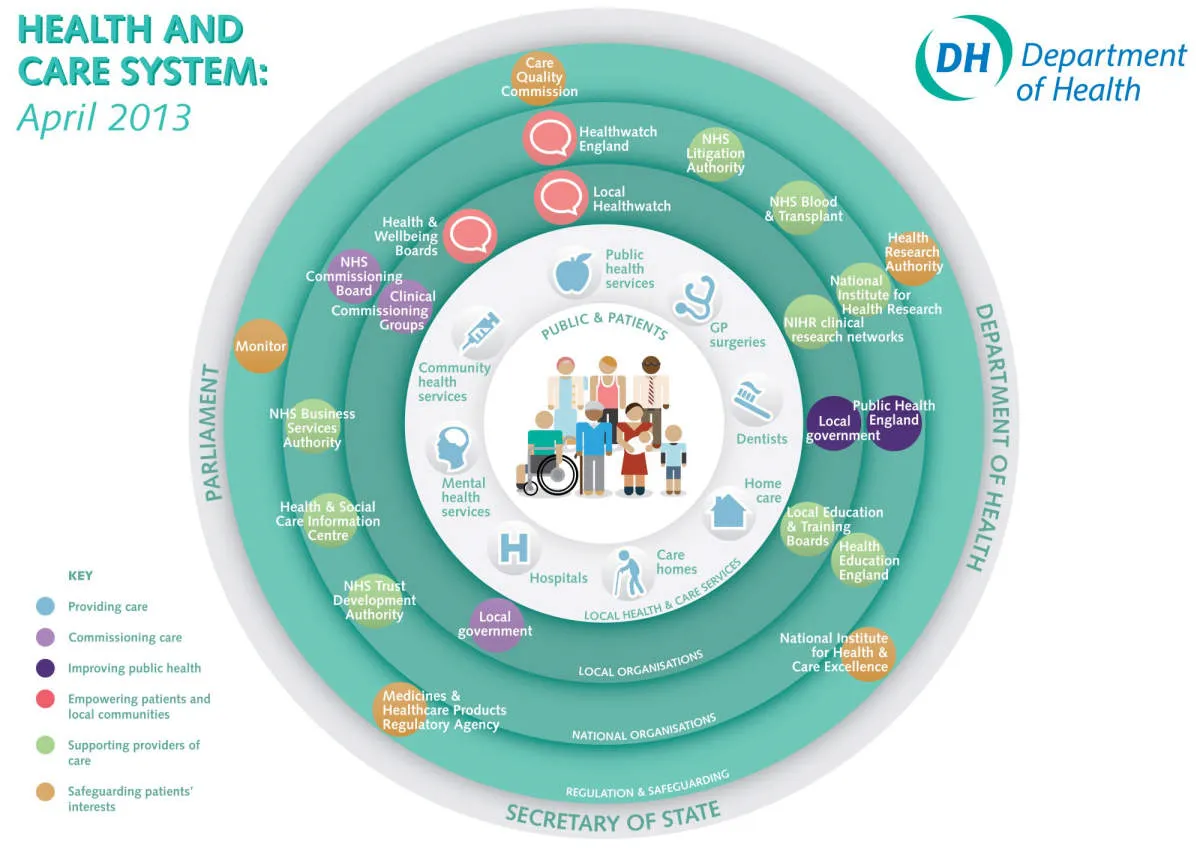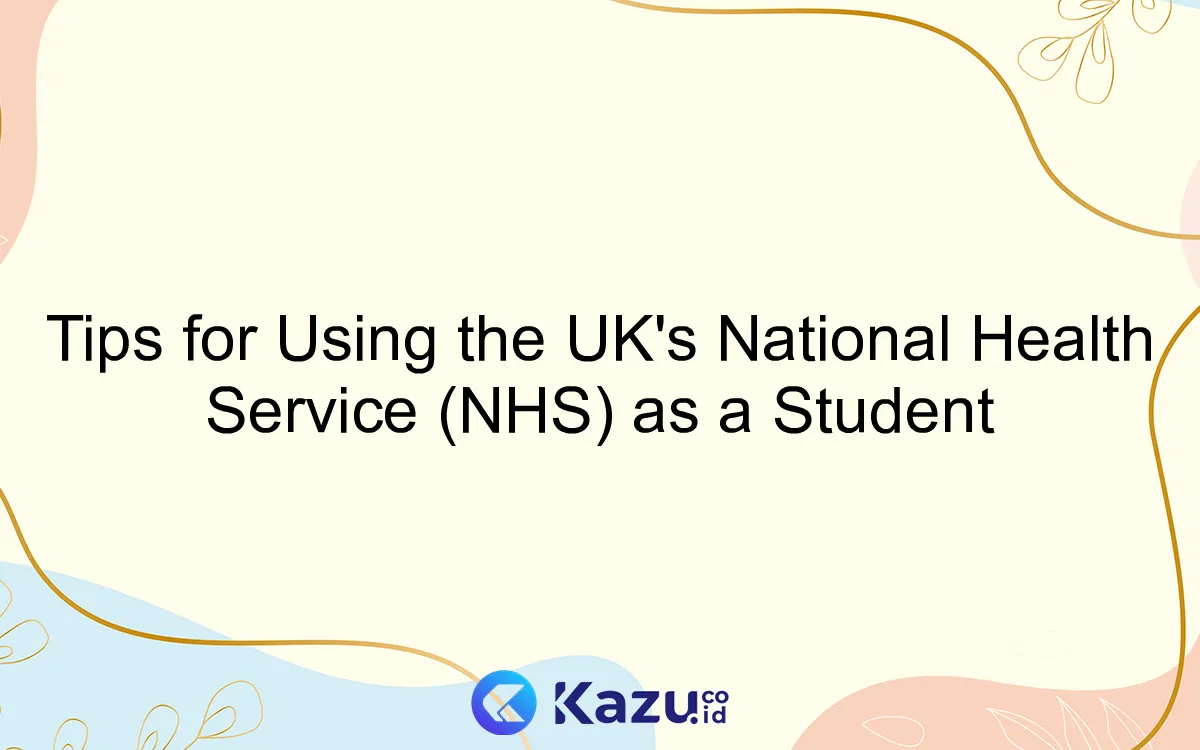If you are a student in the UK, understanding how to make the most of the National Health Service (NHS) can greatly benefit your overall well-being. This article will provide you with valuable tips on navigating the NHS system, accessing healthcare services, and maintaining your health while studying.
Registering with a Local GP: Step-by-Step Guide
Registering with a local General Practitioner (GP) is an important step for international students to ensure access to healthcare services during their time in the UK. Follow this step-by-step guide to register with a local GP:
-
Research your local GP practices
Start by researching the GP practices near your place of residence or educational institution. Look for reviews, facilities, and services offered by different practices to find the one that suits your needs.
-
Contact the chosen GP practice
Get in touch with the chosen GP practice through phone or email. Inquire about their registration process and any required documents or forms.
-
Arrange necessary documents
Ensure you have the required documents ready for registration. This may include your passport, proof of address (such as a tenancy agreement or utility bill), and any applicable visa or student identification documents.
-
Schedule an appointment
Set a date and time for your registration appointment with the GP practice. Make sure to choose a convenient time that doesn’t clash with your academic or personal commitments.
-
Attend the registration appointment
On the designated day, visit the GP practice for your registration appointment. Bring along all the necessary documents and forms requested by the practice, along with any additional medical history or prescriptions you may have.
-
Complete the registration process
During your appointment, you will be asked to fill out registration forms, provide necessary information, and discuss your medical history. Take this opportunity to address any concerns or questions you may have.
-
Receive your registration details
Once the registration process is complete, the GP practice will provide you with your registration details, which usually include an NHS number and information about online services.
By following these steps, you will successfully register with a local GP and gain access to healthcare services through the UK’s National Health Service (NHS) as a student.
Understanding Healthcare Coverage for International Students

As an international student studying in the UK, it is important to understand the healthcare coverage available to you. One of the main healthcare providers in the UK is the National Health Service (NHS), which offers various services to students. Here are some tips for using the NHS as a student:
Register with a General Practitioner (GP)
It is essential to register with a GP as soon as possible after arriving in the UK. Your GP will be your primary point of contact for non-emergency healthcare needs. They can provide general medical advice, offer vaccinations, and refer you to specialists if needed.
Understanding NHS Charges
While many NHS services are free, certain treatments and prescriptions may incur charges. It is important to familiarize yourself with the NHS charges and exemptions so that you know what you might need to pay for. Some international students may be eligible for free NHS treatment, but it is important to check your eligibility and have the necessary documents.
Emergency Care
In case of emergency, you can call 999 for an ambulance or go directly to the nearest Accident and Emergency (A&E) department. Emergency care is provided free of charge, regardless of your immigration status or whether you have insurance.
Accessing Mental Health Support
The NHS offers mental health support for students through GPs, counseling services, and specialist mental health teams. If you are facing any mental health challenges during your studies, don’t hesitate to seek help from these resources.
Addtional Health Insurance
While the NHS provides basic healthcare coverage, some international students may prefer to have additional health insurance for extra peace of mind. This can cover things like private healthcare, specialist consultations, or treatments not covered by the NHS. Research and compare different insurance options to find the one that suits your needs and budget.
Overall, understanding the healthcare coverage available through the NHS is crucial for international students studying in the UK. Take the time to register with a GP, familiarize yourself with NHS charges, know where to access emergency care, utilize mental health support, and consider additional health insurance if desired. By being proactive and informed, you can make the most of your healthcare options as a student in the UK.
Accessing NHS Services: Appointments, Prescriptions, and Emergencies
As a student, it’s important to know how to navigate the UK’s National Health Service (NHS) effectively. Here are some tips for accessing NHS services, including appointments, prescriptions, and emergencies:
Appointments:
1. Register with a local GP: Start by registering with a General Practitioner (GP) near your university or college. They will be your first point of contact for non-emergency health issues.
2. Book appointments in advance: To secure an appointment, call your GP’s office or use their online booking system. Be prepared to wait a few days for non-urgent matters.
3. Be on time: Arrive promptly for your appointments to avoid delays or missed opportunities. Inform the receptionist if you’re running late or unable to attend.
Prescriptions:
1. Obtain a prescription card: If you have a long-term condition and need regular medication, ask your GP about getting a prescription card, known as a “prescription prepayment certificate.” This can save you money on repeat prescriptions.
2. Collect prescriptions efficiently: After your appointment, you can usually collect your prescribed medication from your GP’s designated pharmacy or a local pharmacy. Check with your GP to confirm the procedure.
3. Renew prescriptions in a timely manner: Make sure to renew your prescriptions well in advance to prevent running out of medication. You may be able to request repeat prescriptions online or by phone.
Emergencies:
1. Know when to call emergency services: Call 999 or go to the nearest Accident and Emergency (A&E) department for life-threatening or severe conditions, such as difficulty breathing, chest pain, or heavy bleeding.
2. Utilize NHS helplines for non-emergencies: For medical advice or concerns, call the non-emergency NHS helpline on 111. Trained professionals will provide guidance and direct you to the appropriate care.
3. Visit a minor injuries unit for non-life-threatening issues: If you have a minor injury, such as a sprain or a cut that may need stitches, consider visiting a minor injuries unit instead of A&E. These units offer quick treatment without the long wait times.
In conclusion, understanding how to access NHS services is crucial for students. By following these tips, you can ensure timely appointments, manage prescriptions efficiently, and seek the appropriate care in emergencies.
When it comes to mental health support, the United Kingdom offers a range of options through its National Health Service (NHS) that can be particularly helpful for students. Here are some tips to help you make the most of the mental health support available:
1. Understand the NHS Services
The NHS provides various services for mental health support, including general practitioners (GPs), psychologists, and psychiatrists. Familiarize yourself with these services to ensure you know where to turn for help.
2. Register with a GP
As a student in the UK, it is essential to register with a local GP. Your GP can provide initial mental health assessments and referrals to specialized services if needed. Building a relationship with your GP will enable them to better understand your needs.
3. Take Advantage of University Support
Most universities in the UK offer mental health support services for their students. These may include counseling services, peer support groups, and workshops. Reach out to your university’s student services to explore the available resources.
4. Access NHS Crisis Support
If you find yourself in a mental health crisis, the NHS offers crisis support services available through helplines such as the Samaritans or the NHS 111 service. It is crucial to know these emergency contacts and have them readily available when needed.
5. Seek Community Support
Aside from professional services, seeking support from trusted friends, family, or support groups can also play a vital role in your mental well-being. Connecting with others who share similar experiences can create a sense of belonging and understanding.
6. Stay Informed
Lastly, keep yourself informed about mental health resources and updates from the NHS. Websites such as Mind, NHS Choices, and Student Minds provide valuable information and guidance on mental health matters.
By utilizing the mental health support available through the NHS and other resources, students in the UK can navigate their mental well-being effectively. Remember, your mental health matters, and seeking help is a sign of strength.
Conclusion
In conclusion, understanding how to effectively use the UK’s National Health Service (NHS) as a student is crucial for accessing affordable and quality healthcare. By registering with a local doctor, familiarizing yourself with NHS services, and following proper procedures, you can make the most out of this healthcare system during your time as a student in the UK.
